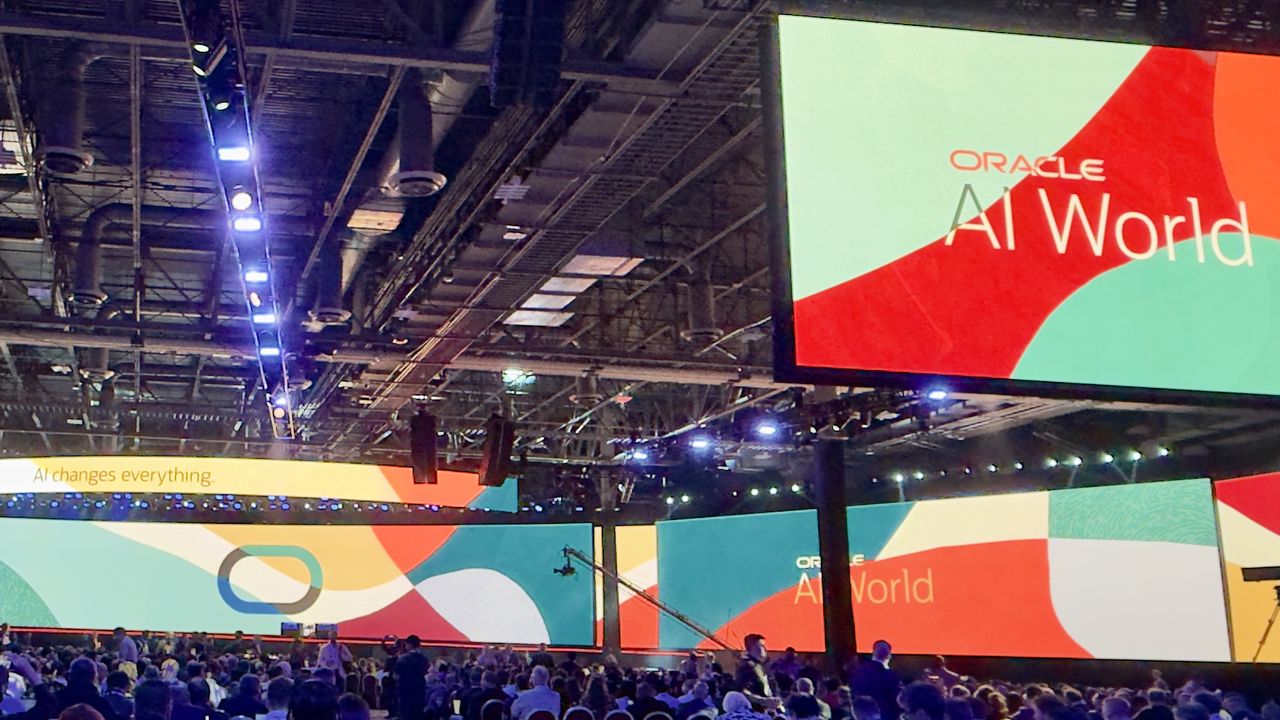
- Oracle claims its Zettascale10 system can reach a peak of 16 zettaFLOPS
- The project uses around 800,000 Nvidia GPUs spread across data centers.
- OpenAI’s Stargate cluster in Texas runs on new Oracle infrastructure
Oracle has announced what it calls the largest AI supercomputer in the cloud, the OCI Zettascale10.
The company claims that the system can deliver 16 zettaFLOPS of peak performance on 800,000 Nvidia GPUs.
That output, when divided, equates to about 20 petaflops per GPU, which is roughly equivalent to the Grace Blackwell GB300 Ultra chip used in high-end desktop AI systems.
Network design for large-scale AI workloads
Oracle says the platform is the foundation for OpenAI’s Stargate cluster in Abilene, Texas, built to handle some of the most demanding AI workloads now emerging in research and commercial use.
“The highly scalable custom RoCE design maximizes the performance of the entire gigawatt-scale fabric while keeping the majority of power focused on computing…” said Peter Hoeschele, Vice President of Infrastructure and Industrial Computing at OpenAI.
At the core of the Zettascale10 system is the Oracle Acceleron RoCE network, designed to increase scalability and reliability for data-intensive AI operations.
This architecture uses network interface cards like mini switches, linking GPUs across multiple isolated network planes.
The design aims to reduce latency between GPUs and allow jobs to continue running if a network path fails.
“With Nvidia’s full-stack AI infrastructure, OCI Zettascale10 provides the computing fabric needed to advance next-generation AI research and help organizations around the world move from experimentation to industrialized AI,” said Ian Buck, vice president of Hyperscale at Nvidia.
Oracle claims that this structure can reduce costs by simplifying tiers within the network while maintaining consistent performance across all nodes.
It also features linear pluggable and receiving optics to reduce power and cooling usage without reducing bandwidth.
Although Oracle’s numbers are impressive, the company has not provided independent verification of its 16 zettaFLOPS claim.
Cloud performance metrics may vary depending on how performance is calculated, and Oracle’s comparison may be based on theoretical peaks rather than sustained rates.
Given that the system’s advertised total is equivalent to the sum of 800,000 high-end GPUs, real-world efficiency could largely depend on network design and software optimization.
Analysts can wait to see if the setup delivers performance comparable to the top AI clusters already running by other major cloud providers.
Zettascale10 positions Oracle alongside other major players competing to provide the infrastructure behind the best GPUs and AI tools.
The company says customers would be able to train and deploy large models in Oracle’s distributed cloud environment, supported by data sovereignty measures.
Oracle also claims that Zettascale10 offers operational flexibility through independent maintenance at the blueprint level, enabling upgrades with less downtime.
“With OCI Zettascale10, we are merging OCI’s Oracle Acceleron RoCE network architecture with Nvidia’s next-generation AI infrastructure to deliver multi-gigawatt AI capacity at unmatched scale,” said Mahesh Thiagarajan, executive vice president, Oracle Cloud Infrastructure.
“Customers can build, train, and deploy their largest AI models into production using less energy and will have the freedom to operate on Oracle’s distributed cloud with robust data and AI sovereignty…”
Still, observers note that other vendors are building their own large-scale GPU clusters and advanced cloud storage systems, which could reduce Oracle’s lead.
This system will be implemented next year and only then it will be clear whether the architecture can meet the demand for scalable, efficient and reliable AI computing.
Through HPC Cable
Follow TechRadar on Google News and add us as a preferred source to receive news, reviews and opinions from our experts in your feeds. Be sure to click the Follow button!
And of course you can also follow TechRadar on TikTok for news, reviews, unboxings in video form and receive regular updates from us on WhatsApp also.



